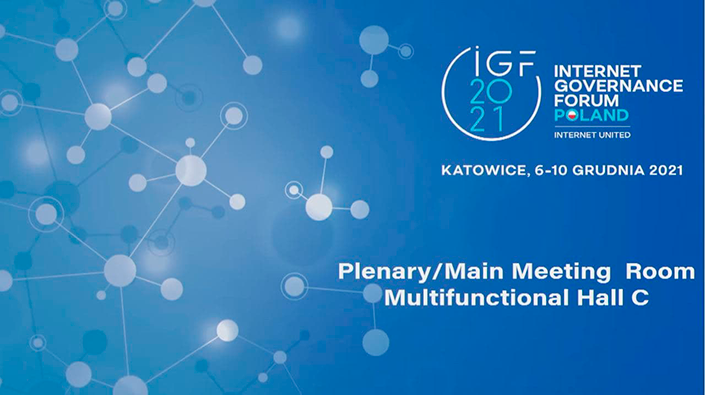
On December 10, the final day of the Internet Governance Forum IGF 2021, Maria Kolesnikova, Chief Analyst at the Coordination Center for TLD .RU/.РФ, moderated a session called Universal Acceptance for Wider Access through Collaboration. The session was organized by the Coordination Center for TLD .RU/.РФ and the Universal Acceptance Steering Group (UASG). Participants in the event discussed the ways Universal Acceptance can promote better social integration and provide wider access to the internet for users who prefer to use local languages, as well as what cooperation at the global and local levels is needed to speed up the adoption process.
Maria Kolesnikova said that, according to a survey by the International Telecommunication Union, 37 percent of the world population has never had access to the internet, and most of these people are not from English-speaking communities. To give them the opportunity to join the global knowledge database and take advantage of the online environment, local languages must be promoted on the net.
In general, Universal Acceptance means that all domain names and email addresses are supported by all software on the internet. In 2010, internationalized domain names appeared with the use of non-Latin alphabets; new gTLDs that used Latin and non-Latin characters emerged in 2013. There are standards for working with such domains and technical solutions for the developers, but not all software, systems and devices support these domains yet. The current difficulties related to the introduction of Universal Acceptance are first of all a problem of technical compatibility, but this global process requires not only work to overcome technical barriers, but also joint efforts and cooperation with various stakeholders.
“Universal Acceptance is an important factor in the development of a multilingual internet which facilitates access and the use of digital space, because people can use internet identifications such as website addresses and email addresses in their native languages,” Maria Kolesnikova added.
Participants in the session also noted the achievements in introducing Universal Acceptance principles over the past decade: internet standards and technical solutions have been developed, and support for new gTLDs and IDNs has improved. However, the problem with the use of email addresses in local languages has not been solved yet. On a final note, participants in the session discussed the prospects and new formats of global and regional cooperation, local UA initiatives and the activity of the ICANN community, as well as further plans in this area.
The full video of the session is available on the IGF’s YouTube channel.



